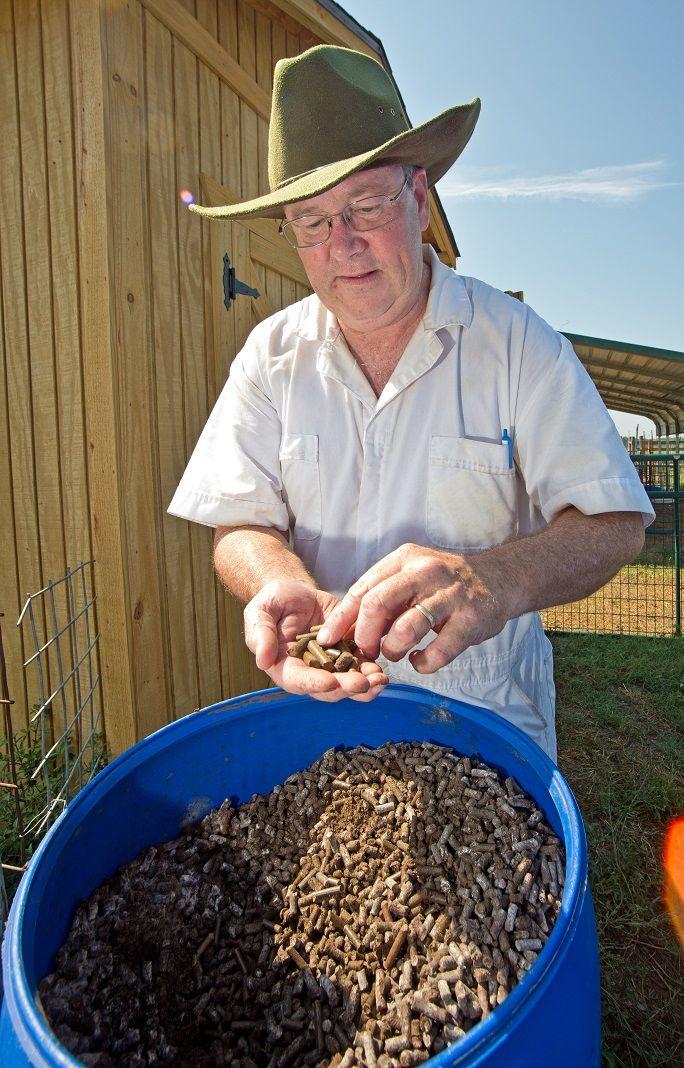Fort Valley State University will soon open the door for small-scale growers to gain skills that could help them establish a sustainable market for sericea lespedeza products.
A high-tannin forage that reduces parasite loads in small ruminants such as sheep and goats, sericea lespedeza is a perennial warm-season legume that can tolerate infertile, acidic soils and grow well on sloping land with minimal lime and fertilizer inputs.
“It’s really quite ideal for small farmers,” said Dr. Thomas Terrill, an FVSU associate professor of animal science.
Terrill, a forage specialist who began researching sericea lespedeza in 2004, recently received a Sustainable Agriculture Research and Education (SARE) grant called, “Expanding Marketing Opportunities for Dried Nutraceutical Sericea Lespedeza Products for Small-Scale Farmers.” SARE grants fund research and education projects. FVSU’s $295,000 award will primarily assist small farmers in Georgia, Alabama and South Carolina.
“We’re looking into working with farmers who have 5 to 10 acres that they can devote to this project to determine the best practices for establishing sericea lespedeza in different areas. It’s not really intended to be a full-time thing, but it could be,” Terrill said. “It is more intended to give small farmers alternatives and a way to make extra money. We are going to test various marketing systems, including direct marketing or contracting with a mill to grind the sericea lespedeza into pellets. There are a lot of different options.”
When working with farmers, Terrill said his team will supply the seeds and expertise with the understanding that they can take soil and forage samples, in addition to collecting economic data.
For this grant, Terrill is collaborating with FVSU colleague Dr. Mohammed Ibrahim, associate professor of agricultural economics, to develop a survey and gather information from lespedeza growers and small farmers who may be interested in planting the seed. Dr. Niki Whitley, an FVSU animal science Extension specialist, will also assist by reaching out to small farmers.
Another partner of the grant is the West Georgia Farmers’ Cooperative, a group of small farmers and individuals interested in cooperative economics throughout west central Georgia and east Alabama. Terrill said four members of the group agreed to plant lespedeza on their farms for field studies. He mentioned that determining the cost to produce sericea lespedeza and the farmers’ profit per acre is an important part of the project.
Member Eric Simpson, a Troup County, Georgia, small farmer since 2012, said he is looking forward to the collaboration because he has small ruminants and wants small farmers such as himself to benefit from producing sericea lespedeza.
“It will allow us to grow a product to bring in extra revenue while continuing to build up other agricultural enterprises such as small ruminant production,” Simpson said.
Furthermore, Terrill, who is also coordinator of the American Consortium for Small Ruminant Parasite Control, said they are working with a seed company called Sims Brothers Inc. The small, family-owned farm located in Bullock County, Alabama, is already marketing the sericea lespedeza pellets and is an additional partner on the grant.
“We’ve been working with them for a long time. They are looking for contract growers. They have a waiting list of people to buy these pellets, and they cannot produce enough to supply the need. Another goal of this project is to encourage more farmers producing lespedeza hay to either work with Sims Brothers or to directly market it themselves,” Terrill said.
“We will have a yearly meeting here on campus with the people who are part of the grant and also invite interested farmers to come for an education day,” he added. “There is a lot of interest in this right now. It is very exciting. I feel like we are supporting a new industry, which is nutraceutical forage production. It may eventually expand beyond lespedeza into other nutraceutical forages.” Terrill said they are learning from farmers who are already planting sericea lespedeza so they can develop guidelines for the best management practices. He said they will begin planting sericea lespedeza in 2019.
“There is so much potential,” Terrill said. “We are also trying to do similar things in Africa. If it works for small farmers here, then we can use that as an example. Hopefully, we can observe that it builds soil fertility, reduces farmer dependency on anti-parasitic drugs and keeps animals healthy.”
For more information about sericea lespedeza, contact Terrill at (478) 825-6814 or terrillt@fvsu.edu.

